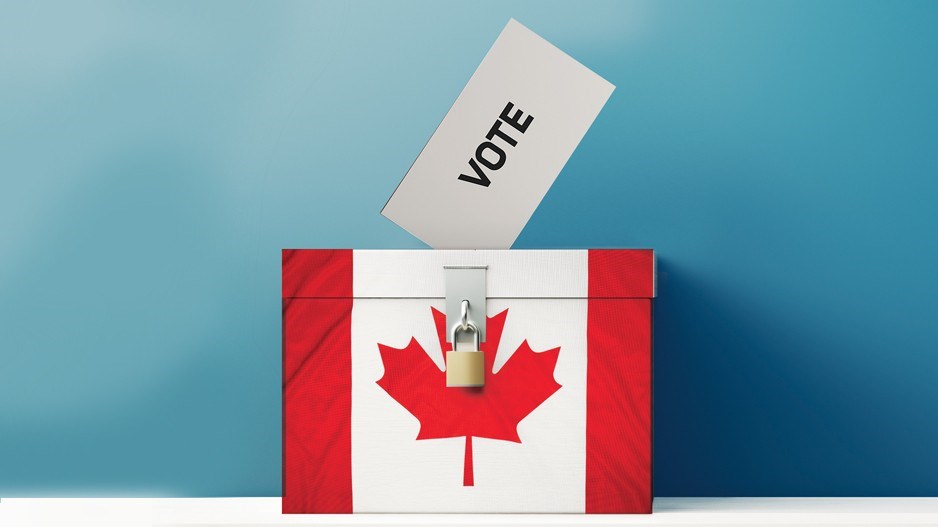It was only two years ago that Canadians went to the polls in a federal election that shrank a majority Liberal government to a minority.
The Liberal Party of Canada lost 20 seats, while the Conservative Party of Canada gained 26. The New Democratic Party (NDP) lost 15 seats. In B.C., the Liberals lost six seats.
Now that Prime Minister Justin Trudeau has called snap election for next month, in an effort to regain a majority government, B.C. could be an important battleground in determining whether he will achieve that goal.
If the polls are correct, and if the election were to be held today, they suggest Trudeau could win a majority government. Trudeau has a couple of advantages over the other parties. For one, the pandemic has worked in his government’s favour.
In times of crises, voters want to see a steady hand at the wheel, and Trudeau was seen almost daily at the height of the pandemic, announcing billions in aid and eventually delivering on promises to get Canadians vaccinated.
The pandemic also made other party leaders largely invisible, which is a particular disadvantage for new leaders, like Erin O’Toole, leader of the Conservatives.
According to a recent Research Co. poll of British Columbians, the Liberals enjoy the support of 37% of decided voters, with the NDP at 29%, Conservatives at 23% and the Green Party of Canada at 8%. Nationally, CBC’s poll tracker averages various polls out to put the Liberals at 35.3%, Conservatives 28.8%, NDP 19.4%, Bloc Québécois 6.8% and Greens 4.6%.
“The numbers for Erin O’Toole are just not there right now,” said Mario Canseco, president of polling firm Research Co.
Richard Johnston, political scientist at the University of British Columbia (UBC), doesn’t put much stock in polls anymore. He thinks both O’Toole and NDP Leader Jagmeet Singh could end up performing much better than the polling suggests.
“I really don’t believe the polls,” he said.
Johnston said pollsters in the U.S. have found the sentiment of Republicans was under-represented in some of their polling.
If a similar trend is happening in Canada among Conservatives here, Canadian polls might also be underestimating Conservative support.
“I find it hard to believe that they’re actually 10 points behind the Liberals,” Johnston said.
He added that the NDP typically tend to improve their standing in the minds of voters during campaigns. And generally speaking, an election campaign can even the playing field by giving candidates more public and media exposure.
“The thing about the campaign is that it does rather level the media playing field amongst the parties, where it has been a playing field tilted towards the government far more than it usually is in normal Parliament and times,” he said.
“I think [O’Toole] is going to campaign a lot better than people are expecting.”
Gerald Baier, political scientist at UBC, said B.C. could be one of the battlegrounds in this election.
“Unlike the Maritimes or Alberta, B.C. is like a three-way race in a lot of places,” he said. “So if you’re looking at a minority government that’s trying to pick up 20 seats or 30 seats across the country, B.C. looks pretty appetizing.”
Both the NDP and Liberals could profit from the implosion of the Green Party, which has a new leader, Annamie Paul, whose leadership has been undermined by her own party members.
“The party is in such shambles, with its leadership issues, that I don’t think it has the energy to focus,” Baier said.
The recent Research Co. poll finds that the top three issues for British Columbians are housing affordability and homelessness, employment and jobs, and health care, in that order. That could give the New Democrats a bit of an edge in B.C., Canseco said.
“You have 26% saying it’s housing, homelessness and poverty,” Canseco said. “When we ask people who the best person to manage this would be, Jagmeet Singh has an advantage over Trudeau. Trudeau might have the advantage of handling COVID and managing the economy and immigration and all those other things, but on the one thing that most people care about [in B.C.], he’s trailing the NDP.”
The polling suggests that the pandemic may have refocused priorities for voters. Whereas the environment tends to rank fairly high in B.C. election issues, in the most recent poll, it came in fourth, and only 1% of respondents said energy and pipelines were a top priority. In the last election, these were hot-button issues.
Areas that may be highly contested, and where there could be seat changes, include the Fraser Valley and Vancouver Island. Canseco said some votes could swing from the Conservatives to the Liberals in the Fraser Valley.
“The other place it could grow is on the Island,” he added. “The numbers for the Greens are not where they used to be under Elizabeth May. Depending on how the campaign goes, some of those seats could go from Green to Liberal or NDP.”
Meanwhile, Johnston thinks some Liberal seats in Metro Vancouver’s suburbs could be up for grabs.
“Those are three-way places, and the NDP is relevant as well,” Johnston said. “So you have two possibilities: that the NDP’s growth could simply mean that they take the seats, rather than the Liberals, and the other possibility is that the NDP’s growth just splits the vote and hands seats back to the Conservatives.
“So I don’t think that we’re looking at some kind of Liberal sweep here.” •




